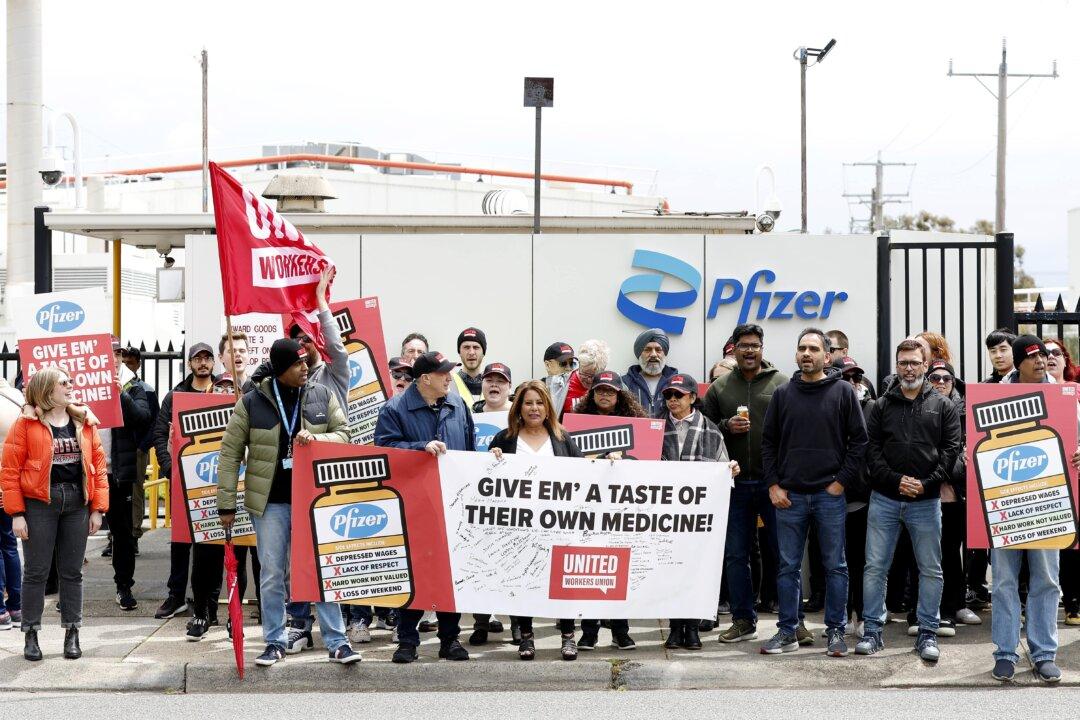Workers at a Pfizer manufacturing plant in Australia have gone on strike after they disagreed with the global pharmaceutical giant’s wage offer.
On the night of Nov. 2, dozens of United Workers Union (UWU) members who worked at Pfizer’s manufacturing plant in southeast Melbourne walked off the job in 24-hour industrial action to protest the company’s wage proposal, which the union considered unacceptable.





